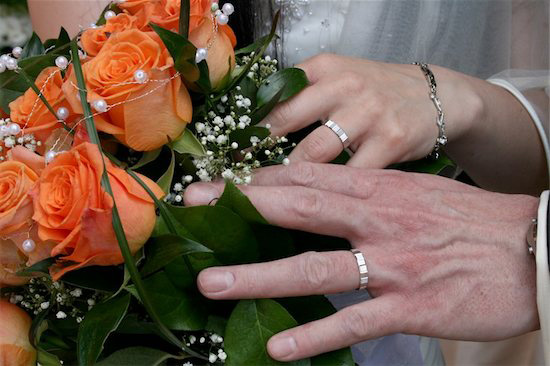The Wait for a New Jersey Marriage License May Soon be Over for Terminally Ill Patients
 Couples looking to marry in the State of New Jersey must apply for a marriage license and sit out the 72-hour mandatory waiting period before the license is issued. For most couples, that three-day waiting period is a minor interruption in their quest to begin their new life together as a family. However, there are certain emergency situations, such as illness or military assignment, where the delay can be a major hindrance. Under circumstances such as these, the waiting period can be waived by a Superior Court Judge.
Couples looking to marry in the State of New Jersey must apply for a marriage license and sit out the 72-hour mandatory waiting period before the license is issued. For most couples, that three-day waiting period is a minor interruption in their quest to begin their new life together as a family. However, there are certain emergency situations, such as illness or military assignment, where the delay can be a major hindrance. Under circumstances such as these, the waiting period can be waived by a Superior Court Judge.
The process for applying for a waiver is feasible under most conditions, but if one of the partners is suffering a terminal illness, the time it takes the other partner to seek the waiver can be significant. That may soon change as a result of a new bill, approved earlier this month by a State Assembly panel, that would make it easier for a couple dealing with a terminal illness to obtain a waiver. Read Matt Friedman’s story, “Don’t make terminally ill patients wait to get married, N.J. Assembly panel says” for details.
 New Jersey Family Law Blog
New Jersey Family Law Blog



 Waiting to marry appears to be a growing trend in this country and one that is expected to continue for the forseeable future. The average age for women marrying for the first time is approximately 27 years, while for men it is about 29 years, according to a recent article in AARP Magazine.(1)
Waiting to marry appears to be a growing trend in this country and one that is expected to continue for the forseeable future. The average age for women marrying for the first time is approximately 27 years, while for men it is about 29 years, according to a recent article in AARP Magazine.(1)
 When we lose a spouse or parent, it is not uncommon for loved ones to be left to clear up his/her affairs and financial matters. It is natural to want to do this quickly while mourning, but our haste could lead to taking responsibility for matters for which we aren’t liable. For instance, when a loved one dies leaving behind credit card debt, are we responsible for its repayment? Generally speaking we are not, although there are exceptions. (1)
When we lose a spouse or parent, it is not uncommon for loved ones to be left to clear up his/her affairs and financial matters. It is natural to want to do this quickly while mourning, but our haste could lead to taking responsibility for matters for which we aren’t liable. For instance, when a loved one dies leaving behind credit card debt, are we responsible for its repayment? Generally speaking we are not, although there are exceptions. (1)


 The engagement ring has long been a symbol of a couple’s intention to wed. But what happens to that ring if the engagement is broken?
The engagement ring has long been a symbol of a couple’s intention to wed. But what happens to that ring if the engagement is broken?